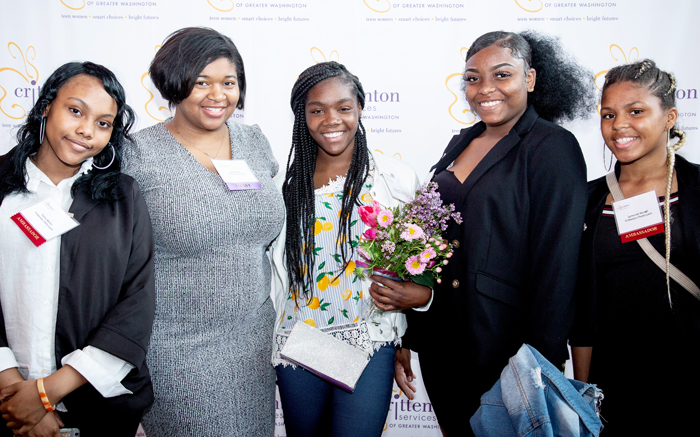Every year, the Crittenton community comes together at our Talk with a Teen Girl High Tea to hear what’s on the mind of our remarkable girls. This year, the girls spoke to the particular challenges of being a black or brown teen girl during the pandemic. Here’s what our girls want you to know about their lives:
OUR GIRLS FACE A LACK OF MENTAL HEALTH RESOURCES
Our girls feel rushed and invalidated when talking with school teachers and counselors. They see limited funding going to their schools and communities and are frustrated with the lack of accessible mental health services for themselves and others.
OUR GIRLS ARE DEALING WITH UNTREATED GENERATIONAL TRAUMA
Our girls recognize their parents and family members are suffering from their own trauma and mental health challenges. They urge adults to get help so they can better help the next generation.
OUR GIRLS FEEL PRESSURE
Our girls believe that, “Because black women have been through a lot and always hold it all together,” they’re seen as always having to be strong. And if they’re the oldest, they have the added responsibility of child care. (See this New York Times article, No Time to be a Child, that features two Crittenton girls).
OUR GIRLS NEED A BREAK
Whether it’s a teacher interrupting a lesson to answer questions, a counselor taking the time to get to know them, or a school day dedicated to mental health, they need a chance to take a breath, put their needs first, and tend to their own wellness.
ALL GIRLS NEED TO SPEAK UP
Most importantly, our girls agreed that they need to speak up, to advocate for themselves and others. Each one had an important point to make about this:
Ruth: If something isn’t right, speak up, even if you’re talking to someone with more power than you and even if you get in trouble.
Amiya: Everyone has a boss, so if the problem really needs to be addressed, go to the Assistant Principal, to the Principal, or even the School Board! Also, be respectful when you talk to them.
Naomi: Speaking up is how you get progress. As long as you’re making a point and expressing yourself, it’s more important to speak up than to simply accept defeat.
Jasmine: It’s hard when you’re shy, like me. But if you tell one adult, they’ll tell another, and soon your problem will be heard.
You can watch the hour-long program here. And if you’re inspired, please make an investment in our remarkable girls. You can make a gift here.
